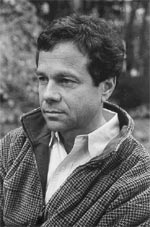 The second annual Boston Book Festival will be held on Saturday October 16th, and note bene, it’s free and open to the public! ThoughtCast’s Jenny Attiyeh will be hosting a discussion titled True Story: The Art of Nonfiction. As soon as it’s available, we’ll post the recording, but in the meantime, here’s the blurb:
The second annual Boston Book Festival will be held on Saturday October 16th, and note bene, it’s free and open to the public! ThoughtCast’s Jenny Attiyeh will be hosting a discussion titled True Story: The Art of Nonfiction. As soon as it’s available, we’ll post the recording, but in the meantime, here’s the blurb:
“Writing a work of non-fiction that’s a page-turner has its challenges. The authors of three diverse works tell all: Noah Feldman’s latest, Scorpions, digs into the amazing stories of four of FDR’s most influential Supreme Court justices. Richard Cohen’s Chasing the Sun is a compendium of entertaining and scholarly lore about our solar system’s brightest star. Kathryn Schulz succeeds in being both witty and erudite while answering the question “why do we love being right?” in Being Wrong.”
Literature RSS feed for this section
The Journal of Henry David Thoreau
Note: an audio version of this interview aired on WGBH radio in Boston!
Henry David Thoreau is justly famous for his book Walden, which tells the story of the two years he spent living by the pond, in the Concord woods. But he also wrote a journal, which he started at age 20 in 1837, and kept up until 1861, shortly before he died. This diary of Thoreau’s daily thoughts and experiences has just been published by New York Review Books Classics, which is celebrating its tenth anniversary this autumn. Edwin Frank, the editor of the series, speaks with ThoughtCast at the Harvard Book Store in Cambridge, Massachusetts.
To watch a shorter version of this interview, go to the NY Review Books Classics blog A Different Stripe! And to read a review on Thoreau’s Journal by intellectual historian John Summers, click here!
And for an audio version of this story, click here:  to listen. (8:34 mins).
to listen. (8:34 mins).
Podcast: Play in new window | Download
Subscribe: RSS
Getrude Stein, Alice B. Toklas & Janet Malcolm!
They were a strange pair: Gertrude Stein, the avant-garde writer, salonniere and collector of art and artists, and her lover and companion, the querulous Alice B. Toklas, standing beakishly in the background. But together they formed a whole. Two Lives: Gertrude and Alice, a new book by journalist Janet Malcolm, explores this relationship, and the literary output it sustained.
Click here:  to listen (30 minutes) to Janet Malcolm speak about her book, at the Brattle Theatre in Cambridge, presented by the Harvard Book Store.
to listen (30 minutes) to Janet Malcolm speak about her book, at the Brattle Theatre in Cambridge, presented by the Harvard Book Store.
Podcast: Play in new window | Download
Subscribe: RSS
Reading List for Obama – your thoughts?
 Scott McLemee, who pens the Intellectual Affairs column for Inside Higher Ed, asked a few of us for a suggested reading list for the president-elect.
Scott McLemee, who pens the Intellectual Affairs column for Inside Higher Ed, asked a few of us for a suggested reading list for the president-elect.
I discovered that one contributor, Daniel Drezner, is a fellow Williams alum, who blogged about the column here. Other contributors were James Marcus, the editor-at-large for the Columbia Journalism Review; Claire Potter, a professor of history and American studies at Wesleyan University; and James Mustich, editor of The Barnes & Noble Review.
And Christopher Hayes, who blogs for The Nation, picked up this thread for his Capitolism column.
Feel free to elaborate in the comments section, below.
How Fiction Works — with James Wood
 James Wood, the sincere, somewhat old-fashioned, unpretentious yet high-minded New Yorker literary critic, spoke at the Harvard Book Store recently about his new book, How Fiction Works.
James Wood, the sincere, somewhat old-fashioned, unpretentious yet high-minded New Yorker literary critic, spoke at the Harvard Book Store recently about his new book, How Fiction Works.
Click here:  to listen (30 minutes).
to listen (30 minutes).
Also… ThoughtCast will be interviewing Wood shortly – hooray! – and we’re interested in your input! We’d like to discuss, among other topics, different kinds of literary creativity. What makes a great critic, rather than, say, a great novelist, or poet? What does the critic look for? How personal is the art of criticism, and how much a matter of taste – or instinct? Just how ‘creative’ is it?
Please add your thoughts in the comments section below, or email them to feedback at thoughtcast dot org!
Podcast: Play in new window | Download
Subscribe: RSS
Art & Science with Alan Lightman
Note: This program was broadcast on WCAI, the Cape and Islands affiliate of WGBH.
 Alan Lightman, the MIT physicist and best-selling author of Einstein’s Dreams, is a man of unusual ability. Talented in both the sciences and the arts, he’s both left- and right-brained, a condition that confers challenges as well as benefits.
Alan Lightman, the MIT physicist and best-selling author of Einstein’s Dreams, is a man of unusual ability. Talented in both the sciences and the arts, he’s both left- and right-brained, a condition that confers challenges as well as benefits.
Lightman has recently come out with a new book which explores these two realms – and it’s called Ghost! It deals with the permeable boundary between hard science and the paranormal — and asks, where does science fail us, and what, if anything, can take its place? Does mystery take over? And can it step in where science falls short?
Click here:  to listen (28:30 minutes) on ThoughtCast!
to listen (28:30 minutes) on ThoughtCast!
And to listen Alan Lightman on WGBH’s Forum Network, click here — and here!
Podcast: Play in new window | Download
Subscribe: RSS

